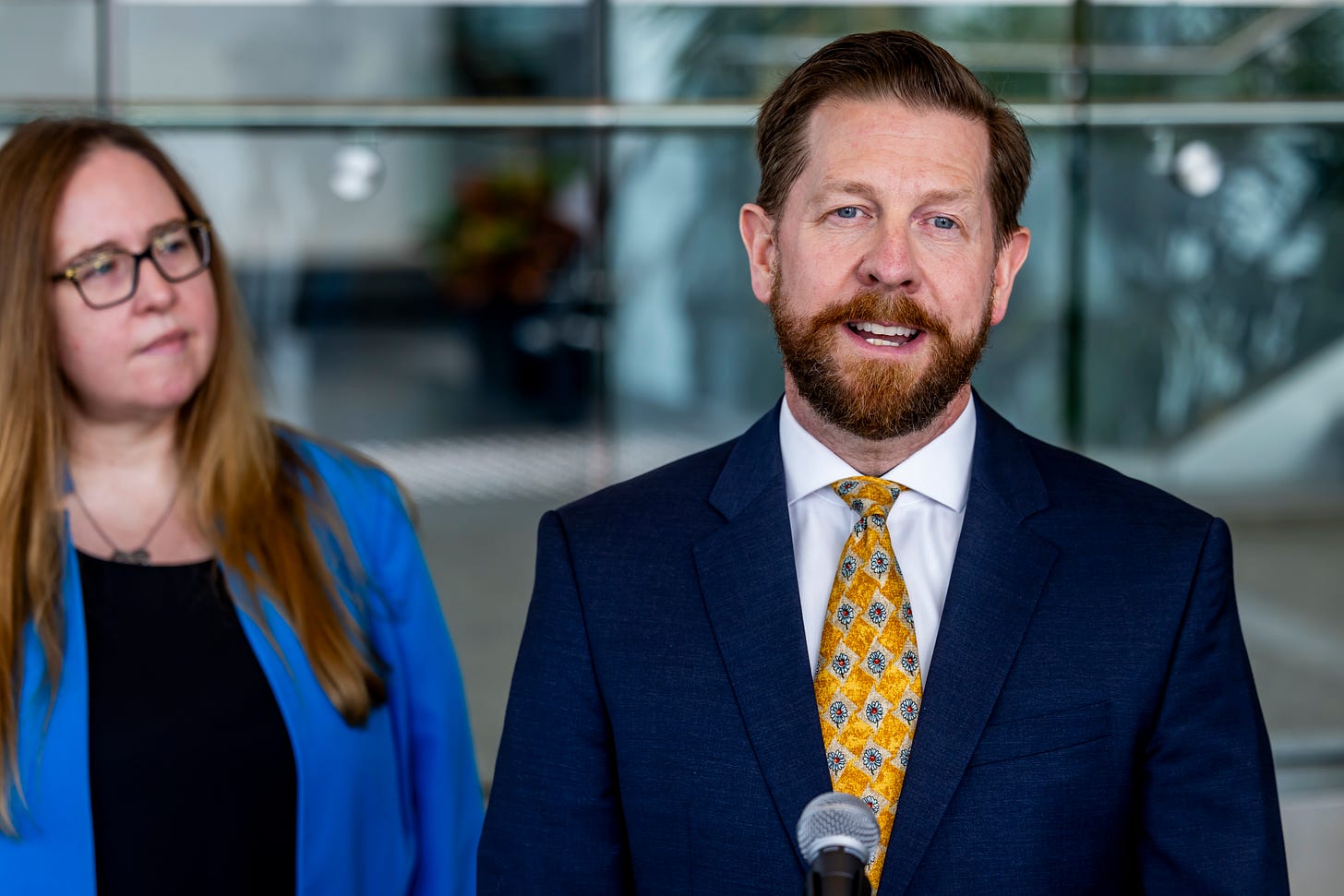Alberta government to grant itself new powers over cities in finalized Bill 20
Municipal Affairs critic Kyle Kasawski calls Bill 20 undemocratic and disrespectful to citizens.
by Eli J. Ridder, Canadian Press
Published in EverythingGP on Oct 18, 2024
The Alberta government will grant itself the power to trigger referendums that could remove councillors and amend or repeal city bylaws that exceed municipal authority as part of several changes to how local governments operate.
The ruling United Conservatives first unveiled proposed updates to the Municipal Government and Local Authorities Elections acts earlier this year, to mixed reaction from mayors, councillors and other officials across the province.
The finalized Bill 20 announced by Municipal Affairs Minister Ric McIver on Friday featured some changes to the original proposal introduced in April.
In the first version of the legislation, the province gave Cabinet the ability to remove members of council directly.
It was changed so the province can only trigger a vote of the electorate to dismiss a councillor that is unwilling, unable or refusing to do the job for which they were elected or if such a referendum is in the public interest.
The updated Bill 20 added guardrails to Cabinet’s ability to amend or repeal a city’s bylaw, a new power first introduced in the initial proposal.
The government will only be able to intervene if a bylaw exceeds the scope or authority granted to a municipality by the MGA, is contrary to provincial policy or contravenes Canada’s constitution.
The new rules will also allow municipalities to require criminal record checks for candidates, require mandatory orientation training and grant elected officials the ability to recuse themselves for real or perceived conflicts of interest.
Bill 20 passed debate in the legislature earlier this year and comes into effect with the new changes on Oct. 31.
McIver spent time consulting with municipal leaders and advocacy groups over the summer and said Friday their feedback is present in the Municipal Affairs Statues Amendment Act.
“Our intent with introducing Bill 20 in the spring and now with the regulations that I am announcing today has been the same from the very beginning: to increase accountability, transparency and public trust in local elections,” McIver said.
“I know these are things that matter to voters in all municipalities in Alberta.”
Corporate and union donations in local elections will be permitted once again, with limitations.
Individuals, corporations or unions are capped at contributing $5,000 total to all local parties per jurisdiction per year.
The change reverses a ban brought in under the New Democrats.
Alberta Municipalities, an organization that advocates on behalf of Alberta’s urban cities, has been a vocal critic of the changes, with president Tyler Gandam saying that opening the door to big donors puts local government’s “up for sale to the highest bidder.”
The legislation also allows local political parties and slates on the ballot beginning in 2025 but only in the province’s two largest cities, Edmonton and Calgary.
The Alberta New Democratic Party’s municipal affairs critic Kyle Kasawski said the United Conservatives are trying to bully local elected officials and get conservative candidates elected.
“It is undemocratic and disrespectful to citizens, who the UCP feels can’t be trusted to make their own decisions,” Kasawski said in a statement Friday afternoon.
“This is just another attempt of this UCP government to keep their thumb on the scale in municipal matters they don’t need to be involved in. Ironic for a government forever telling Ottawa to ‘stay in its lane’.”
Instead, Alberta municipalities need a provincial government that respects mayors, reeves and councillors, Kasawski added.
Banning electronic tabulators
The Alberta government is prohibiting automated voting equipment, such as electronic tabulators.
Alberta Municipalities said in a statement from its board of directors that the added costs for the 2025 election are unknown but shouldn’t be underestimated.
“The new rules will compound unwelcome expenses, complexity and potential delays to election results due to the requirement to count ballots by hand,” the board said.
“In this respect, the regulation and legislation are completely at odds with the Government of Alberta’s commitment to reduce red tape. Alberta Municipalities hopes the provincial government will reconsider legislation as it pertains to the machines which count paper ballots.”
Leading municipal affairs consultant George Cuff said the ban is a UCP overreaction to the controversy over electronic voting machines in the U.S., where former President Donald Trump made unsubstantiated claims that automated tabulators there rigged the 2020 election against him.
The Alberta NDP’s Kasawski described the new ban on electronic ballot-counting machines as “particularly egregious.”
“These have been used for decades to make local elections more efficient, accurate and affordable. Getting rid of them at the request of a few conspiracy theorists will cost property taxpayers millions of dollars,” Kasawski said.
“At least we can be comfortable that there will be no chemtrails in local elections.”




